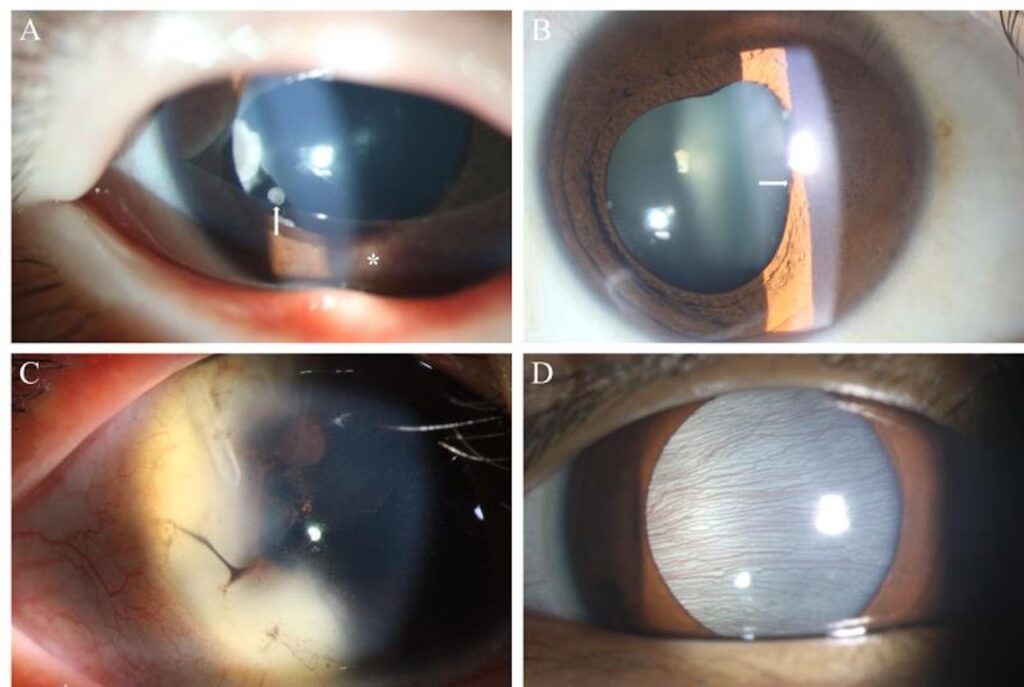Medulloepithelioma (Intraocular, Rare)

Overview
Medulloepithelioma is a very rare, embryonal intraocular tumor that arises from the non-pigmented ciliary epithelium of the eye. It primarily affects young children, typically under the age of 10. It can be benign or malignant and may lead to vision loss or eye removal if not diagnosed early.
Symptoms
- Decreased vision or blurred vision
- Eye redness or inflammation
- Pain or photophobia
- Visible mass in anterior segment (occasionally)
- Secondary glaucoma or cataract
Causes & Risk Factors
- Sporadic, non-hereditary tumor
- Believed to arise during fetal eye development
- Typically presents in early childhood
Diagnosis
- Slit-lamp examination and indirect ophthalmoscopy
- Ultrasound biomicroscopy (UBM) and B-scan ultrasound
- MRI to evaluate intraocular and orbital extension
- Histopathology after biopsy or enucleation
Treatment Options
- Enucleation (complete removal of the eye) for malignant or extensive tumors
- Local excision or partial lamellar sclerouvectomy for smaller, benign lesions
- Radiation therapy (rare, reserved for recurrent or inoperable cases)
Prognosis
- Benign tumors have excellent prognosis post-surgery
- Malignant cases require close monitoring for local spread or recurrence
- Rarely metastasizes outside the eye
Living with this Cancer Type
- Vision rehabilitation or prosthesis fitting post-enucleation
- Psychological support for patient and family
- Regular monitoring of the remaining eye
- Genetic counseling not typically required
Prevention & Screening
- No known prevention
- Prompt evaluation of unexplained eye symptoms in children
- Early diagnosis improves outcomes and preserves vision
FAQs
A:It can be benign or malignant; early diagnosis determines the best outcome.
Q: Is this tumor inherited?
A:No, it is not associated with genetic syndromes.
Q: Will my child lose their eye?
A:Not always. In benign or localized cases, conservative surgery may preserve the eye.
Resources
- American Association for Pediatric Ophthalmology and Strabismus (AAPOS)
- Eye Cancer Network
- ClinicalTrials.gov
Understand Precision Testing
Learn how liquid biopsy and chemo sensitivity testing can personalize your treatment plan.
Make Informed Decisions
Gain knowledge to actively participate in treatment discussions with your healthcare team.
Improve Treatment Outcomes
Discover how precision medicine and metabolic therapies can enhance treatment effectiveness.
Start Your Educational Journey Today
Empower yourself with knowledge about precision metabolic oncology and take an active role in your cancer care journey.
Need More Information?
Our team of oncology experts is here to help you understand your diagnosis and treatment options.
